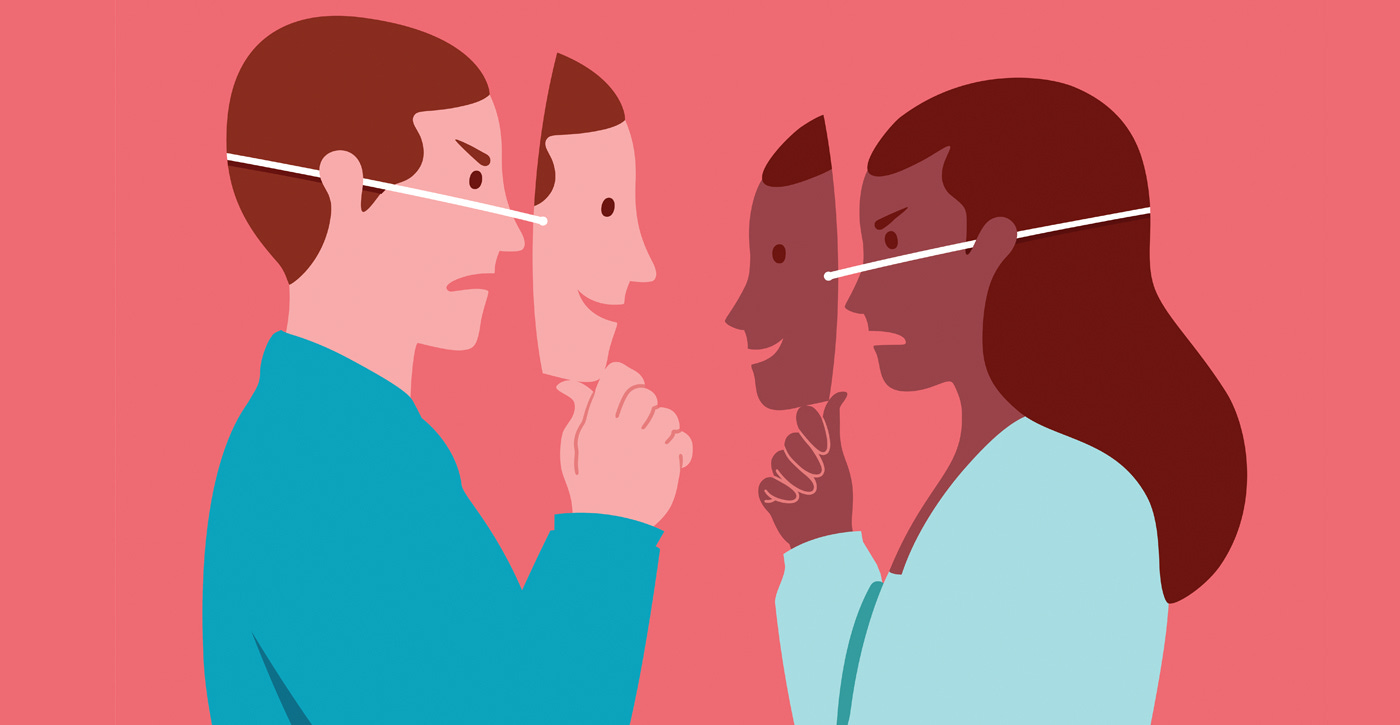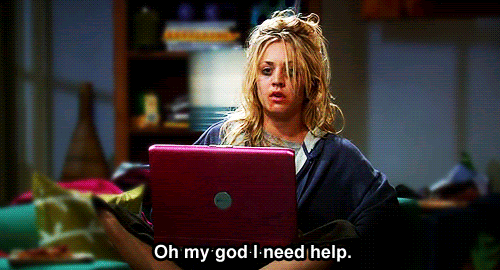Stop being so damn nice
7 reasons why being polite/nice is a terrible idea, including inequality, inauthenticity and... being boring.
Today, I saw this Note from Substack co-founder
:I squirmed, given the recent Substack controversy triggered by CEO Chris Best’s interview with The Verge’s Nilay Patel. It’s a bit rich that the same company who won’t commit to moderating racist or fascist content are happy to tone-police on a platform of “politeness”. Or it’s a classist smokescreen.
(For useful perspective on the Best/McKenzie mess, check out Noah Berlatsky in the below 👇🏻)
Politeness, to me, seems a lot like niceness. And I’m very suspicious of niceness. Read on to find out why.
The original version of the below article was published on my website in August 2022. As I build my Substack, I’m updating and migrating content that suits Current Fad. Check back as articles are added, or check out the archive on my website. Even better, support the time it takes to refresh old content, and the development of new pieces, by becoming a paid subscriber.
I've always felt ashamed of it, but niceness triggers something in me. My bullshit radar pings and I feel... alone. Less connected to the nice person, rather than validated.
It's a sensitive radar. It might go off in conversation, where someone asks a polite question that feels forced. Or I'll get a text with too many exclamation marks or friendly emojis, and a weird sense of emptiness sets in.
I feel it with false flattery too - sucking up doesn't work for my kids. It gets me off side, rather than softened up. I skim past the conversational foreplay in phone calls, feel annoyed at the hollow pleasantries at the beginning of an email, and tune out of conversations that feel fake.
What's my bloody problem, eh?
Why I find niceness so suspicious
Ta-da, its childhood trauma! That old chestnut, popping up to disrupt my 30s. Turns out, adverse childhood experiences make you prone to distrust and negative emotional processing.
But there's an empowering translation of this too, too: struggle hones your bullsh*t radar in helpful ways. When you've had to be highly attuned to the emotional states of others, for your own safety, you develop a spidey sense for when things aren't right. When you trust that instinct, it can be a useful mechanism for working out who to rely on, and to what extent.
My intolerance for inauthenticity and frustration with fakery has underpinned a successful career getting to the heart of organisational dysfunction and steered many a strategy back on course. But it's not always popular - especially with people who want to be nice.
The issue of niceness in the workplace comes up in my leadership programme too, when we tackle boundaries, respect, communication and performance. On Not An MBA, we learn the skills for strategic leadership, to bust out of operational overwhelm and direct our energy more usefully. This all sounds good… until people realise they're going to have to let people down, eject themselves from projects and value their time differently - which can be terrifying to the compulsively nice.
7 problems with niceness
“We must learn and then teach our children that niceness does not equal goodness. Niceness is a decision, a strategy of social interaction; it is not a character trait. People seeking to control others almost always present the image of a nice person in the beginning.” - Gavin de Becker.
Here's seven reasons why being nice is a problem, to help you reconsider your polite programming (or to potentially feel better about your personal lack of niceties.)
1. Accidental discrimination
A lot of what we consider 'nice' or ‘polite’ behaviours is just ingrained classism. "Good manners" are a clearer tell of someone's family background than of their character, and when we don't interrogate the origin of what we find rude, we privilege people who came from the 'right' kind of families. In general, those families are middle class, white and socially, politically and economically dominant.
Many of our cognitive shortcuts for niceness or trustworthiness are culturally specific and they vary wildly across the globe. Maintaining eye contact, for example, is considered polite in many Western cultures, but aggressive and disrespectful in many Eastern societies.
Norms of ‘politeness’ are also challenging for the neurodiverse, who may experience social interactions differently and appear rude or disengaged when they're simply processing their environment through a different lens.
When these small differences add up over the course of a lifetime or career - from job interview competency through to social cues, aligned hobbies and common language - we accidentally perpetrate a divide that leads to huge discrepancies in opportunity, promotions, income and quality of life.
2. Poor boundaries
Nice people are responsive. They're helpful, courteous and attentive. All positive qualities on paper, but the shadow side is dangerous. When we have our responsiveness and helpfulness rewarded, we’re backed into a corner when we need to say no or establish boundaries. Without the skills to push back, many professionals find themselves overworked, frustrated and resentful, with a bulging email inbox, impossible to-do list and a staggering weight of extra commitments.
Setting boundaries requires intention, education and practice. If you've established a reputation on the basis of your niceness, it can feel impossible to decline requests for help or refuse to attend an event, for fear of being rude or damaging relationships.
The data is clear on this one: sustainable compassion requires clear boundaries. Without the skills and confidence to set your own limitations, you're on the fast-track to burnout.
3. Emotional repression
When we feel pressured or obliged to be pleasant and accommodating - because of cultural norms or personal programming - it ‘s hard to express healthy disagreement or conflict. When our feelings are hurt or our boundaries are crossed, we've got two options: let it out, or let it fester. These things don't go away. Our bodies keep the score, and if letting it out doesn't feel possible, we keep that discontent inside, until it manifests as stress, sadness, anxiety or loneliness.
That repression isn't just toxic for our personal health. Relationships without an outlet for honest and respectful communication can only ever remain shallow.
Quality connection requires honest self-disclosure, even when those feelings are challenging. If you're too focused on being nice, you curtailing the potential of your personal and professional relationships - and cheat yourself from the joy of belonging.
4. Gendered inequality
The standards we hold for ourselves and others are not applied equally across the gender continuum. People who present as female carry the weight of deeply embedded expectations that are often invisible and internalised. Women are socialised to be nice, and expected to be more altruistic and accommodating. Young girls are implored to “ask nicely” and “be nice,” putting the comfort of others ahead of our own. Over time we come to accept this - and realise how important niceness is to promote our safety.
In general, men have far greater latitude to set boundaries, state their opinions and have confidence in the worthiness of their contribution. We forgive assertiveness, gruffness and even aggression in male leaders, often valorising it as "strong leadership" while the same behaviours, expressed in smaller degrees, feel off-putting in our female colleagues. Men are strong, women are hard. Men have conviction, while women are b*tches. Men are clear, while women are difficult.
All these expectations lead to discrepancies in respect, opportunities, promotions and pay.
5. Overcommitment
People that are too responsive because they want to be nice set themselves up for overcommitment, which will ultimately backfire. When we say yes to too many things, we make an unconscious decision that we'd rather let someone down later than be honest with them today. When we fail to deliver, we negatively impact other people's efforts, create a reputation for flakiness and erode trust, connection and productivity across the board.
It's always far better to be realistic about capacity at the beginning it is to make last minute changes to deadlines or ghost people out of shame and panic.
6. Safety risks
One of the most dangerous ways niceness appears in every day life is when we bend the rules or ignore red flags from a misguided sense of kindness or to bolster people's opinion of us. When I'm out walking with my children, it's important to me cars don't slow to let us cross the road or stop to let us pass. That way, they don't accumulate inaccurate ideas about road safety that might put them in danger later in life. The same is true for giving way at intersections - people that let you go, even though they've got right of way, make the road less safe for all of us.
These safety risks can carry grave consequences. A culture that expects niceness, especially in women, makes it unsafe for us to reject unwanted advances or call out problematic behaviour without the threat of aggression or violence.
“Men and women live in different worlds...at core, men are afraid women will laugh at them, while at core, women are afraid men will kill them.”
― Gavin de Becker, The Gift of Fear: Survival Signals That Protect Us from Violence
We accept hugs we don't want, tolerate 'compliments' that make us feel uneasy and, when we’re sexually assaulted or rape, will often capitulate to keep ourselves safe - or even make our rapists breakfast. Because men expect us to be nice ('Smile more, you look much prettier!), the potential cost of speaking up is real, and it's too high. Niceness is putting us in real physical danger.
Gendered expectations of niceness don’t just create work environments where men receive more accolades and promotion, they create social environments where women smile along with predatory men to reduce the risk of violence.
7. Lack of progress
Bold ideas - the ones that change the world, transform companies or provoke social progress - are rarely thought of as nice.
Nice is bland. Nice is boring. Nice is afraid to offend anyone, or leave anyone out, so isn't specific or unique enough to be of value to anyone. We waste time and effort making sure we've covered all our bases and as a result, we aren't compelling to the customers, friends or employees we most want to reach or serve.
When people don't speak up in meetings, call out flaws and assumptions or tell us what they really think in an effort to be nice, the quality of our work suffers and the likelihood of successful implementation drops off a cliff. Alignment is more important than agreement, but it requires authenticity to achieve.
In my strategy work, one of the most frustrating and common barriers I find is an unwillingness to focus or make trade-offs. Because we're afraid to narrow our attention to where we'll have the most impact, we spin our wheels at the operational coalface, diluting our effort across too many projects, marketing to too many different demographics and juggling too many different plates, while our goals move further out of reach. Clear strategy isn't nice. Transformational change isn't nice.
Nice is a mediocre goal for any strategy, plan or campaign - you'd never put it in your vision, so why retain it as a value?
Weighing up the cost of niceness
Being nice is a dangerous game. Taken too far, we pay a personal cost, damage relationships, jeopardise our safety, perpetrate inequality and hamstring our impact.
To be very clear: I'm not against compassion, service, empathy or kindness. I teach my children manners, I value courtesy and I believe in helping others, especially people who find it difficult to help themselves. But like all positive traits, there's a shadow side to being nice.
If the cost of niceness is inauthenticity, inequality, burnout and boredom, then quite frankly, I'd rather you weren't so nice after all.
If you enjoyed this article, and you’d like to see more, please consider upgrading to a paid subscription. After years of creating and distributing free content in the name of publicity and exposure, I’m excited for the opportunity to build a more direct and rewarding relationship with my audience. I’d love that to include you.
















Whew, that Verge interview was... something. Had not seen that, thanks for highlighting.
Great depth in your article, thanks!